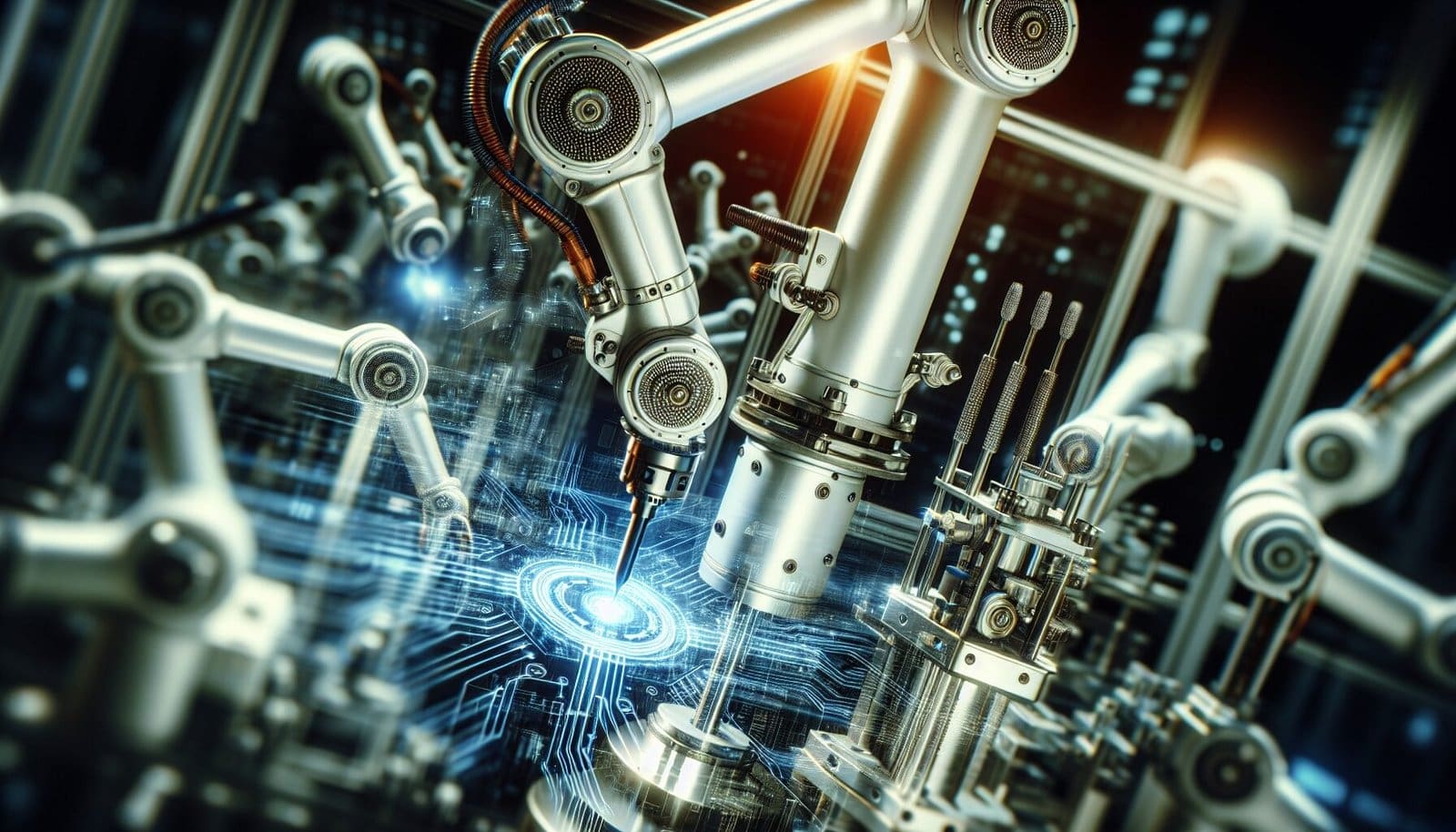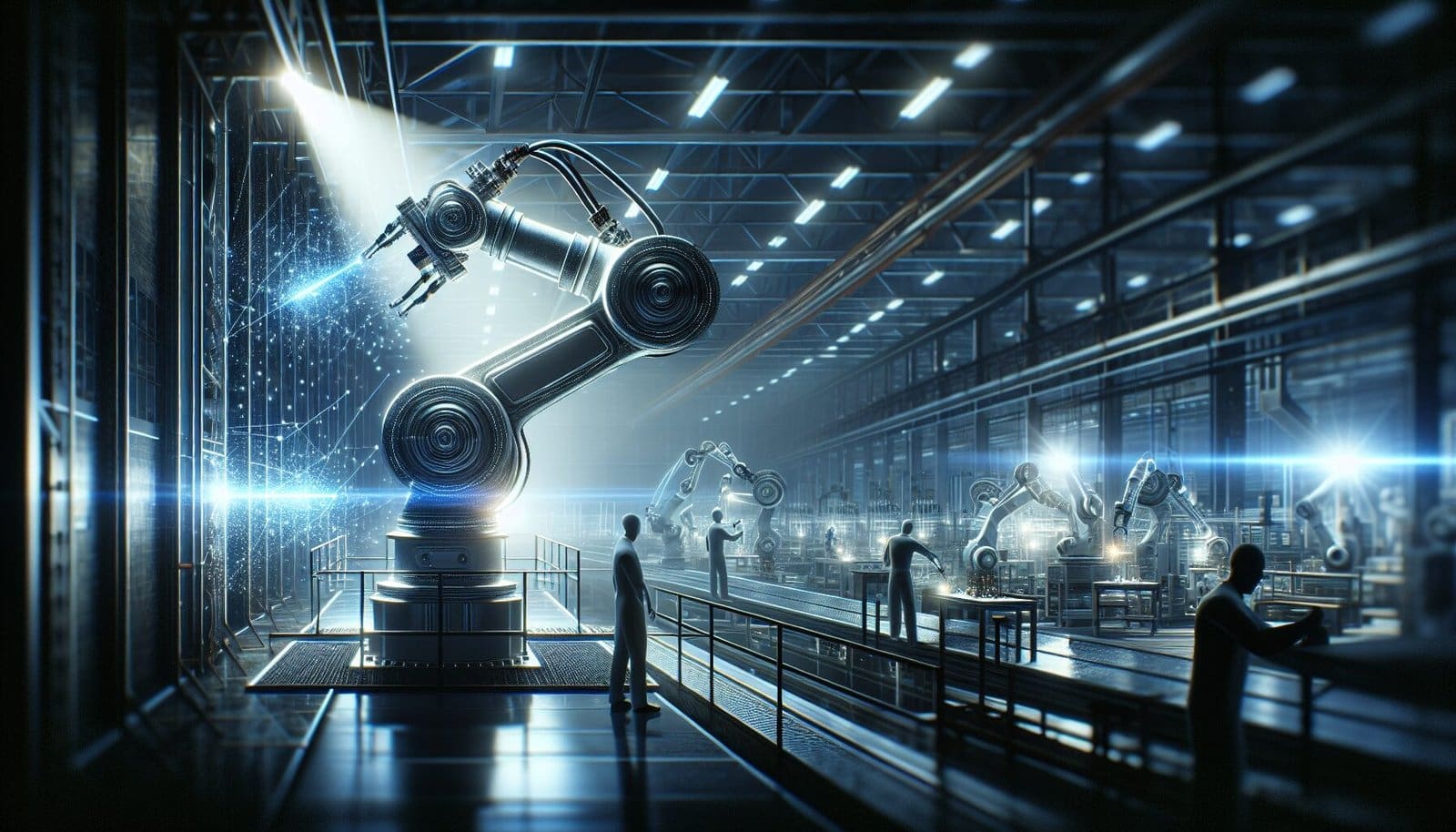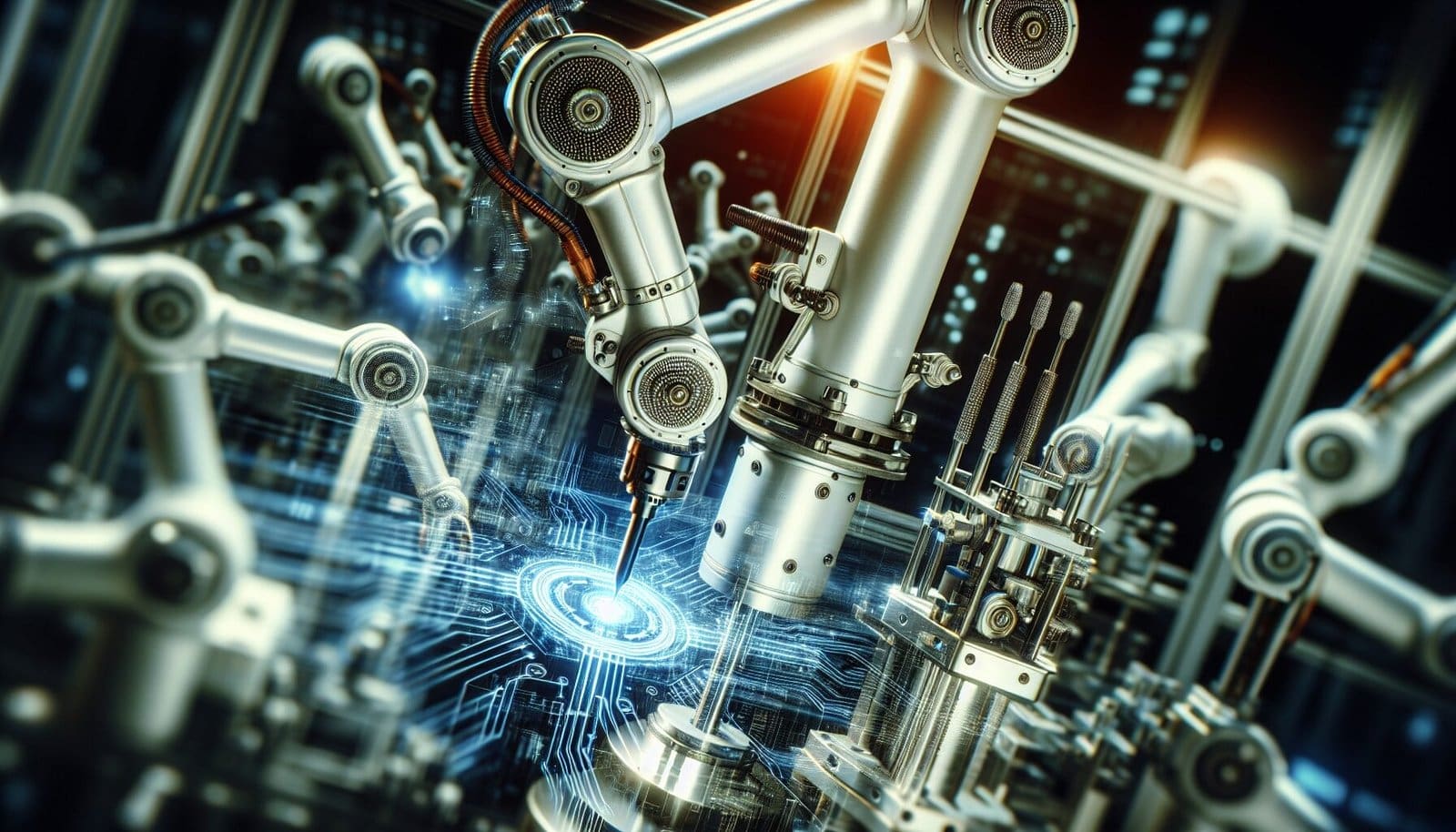In today's fast-paced world of manufacturing, the key to success lies in maximizing efficiency. And with the ever-growing advancements in technology, particularly in the realm of artificial intelligence (AI), manufacturers are finding powerful tools at their disposal to help them achieve this goal. By harnessing the capabilities of AI applications, such as predictive maintenance, automated quality control, and real-time monitoring, companies can streamline their processes, reduce downtime, and ultimately, boost their productivity. In this article, we will explore the various ways AI is revolutionizing the manufacturing industry, paving the way for increased efficiency and competitive advantage.

Introduction to AI Applications in Manufacturing
Artificial Intelligence (AI) has become a transformative force in various industries, and manufacturing is no exception. With the ability to process vast amounts of data and perform complex tasks, AI has revolutionized the way we design, produce, and manage products. In this article, we will delve into the applications of AI in the manufacturing industry and explore how it is optimizing production processes, enhancing product design and development, improving supply chain management, increasing operational efficiency, ensuring workplace safety, empowering human-machine collaboration, streamlining decision-making, addressing sustainability challenges, and discuss the challenges and limitations that come with its implementation.
Definition of AI
Before we dive into the applications of AI in manufacturing, it is essential to define what exactly AI is. AI refers to the simulation of human intelligence in machines that are programmed to think and learn like humans. AI systems are designed to analyze data, recognize patterns, and make decisions without explicit human intervention. It encompasses a range of technologies, including machine learning, natural language processing, computer vision, and robotics.
Overview of Manufacturing Industry
The manufacturing industry plays a pivotal role in driving economic growth and development worldwide. It involves the creation of products, ranging from automobiles to consumer electronics, pharmaceuticals, and everything in between. The sector comprises a vast network of processes, from design and production to distribution and customer service. With advancements in technology, the complexity of manufacturing has increased, necessitating the integration of AI to improve efficiency, accuracy, and overall performance.
Growth of AI in Manufacturing
Over the past decade, the adoption of AI in manufacturing has seen significant growth. With advancements in computing power and the availability of vast amounts of data, manufacturers have recognized the value of AI in optimizing operations and gaining a competitive edge. According to a report by MarketsandMarkets, the AI in the manufacturing market is expected to reach $16.7 billion by 2025, indicating the increasing recognition and adoption of AI technologies in the sector.

Benefits of AI in Manufacturing
The integration of AI in manufacturing offers a multitude of benefits, ranging from improved productivity and quality to enhanced decision-making and reduced costs. Let's explore some of the advantages that come with leveraging AI technologies in the manufacturing industry.
-
Optimizing Production Processes: AI enables automated material handling, predictive maintenance, quality control and inspection, and inventory management, all of which contribute to streamlining production processes and reducing downtime. By automating these tasks, manufacturers can increase productivity, improve product quality, and optimize resource allocation.
-
Enhancing Product Design and Development: AI facilitates product lifecycle management, design optimization, and virtual prototyping. With AI-powered tools, manufacturers can streamline the design and development stages, resulting in better products, faster time to market, and reduced costs.
-
Improving Supply Chain Management: AI enables demand forecasting, logistics optimization, and supplier management. By leveraging AI algorithms to analyze historical data and market trends, manufacturers can make more accurate demand forecasts, optimize transportation and logistics operations, and effectively manage their supplier network.
-
Increasing Operational Efficiency: Real-time monitoring and analytics, process automation, and energy management are key areas where AI can enhance operational efficiency. With AI-powered monitoring systems, manufacturers can detect and address issues in real-time, automate repetitive tasks, and optimize energy consumption, leading to increased productivity and cost savings.
-
Ensuring Workplace Safety: AI plays a vital role in creating a safe working environment by enabling fault detection and prevention, risk assessment, and worker assistance and protection. Advanced AI systems can identify potential hazards, mitigate risks, and provide real-time guidance and support to workers, reducing the likelihood of accidents and injuries.
-
Empowering Human-Machine Collaboration: Collaborative robots, known as cobots, are a prime example of how AI empowers human-machine collaboration. Cobots work alongside humans, assisting in physically demanding tasks and improving overall productivity. Additionally, AI can be used to enhance the skills of human workers, allocate tasks efficiently, and optimize scheduling for maximum efficiency.
-
Streamlining Decision-Making: AI offers data analytics and insights, predictive analytics, and optimization algorithms, enabling manufacturers to make informed and data-driven decisions. By analyzing vast amounts of data in real-time, AI systems can identify patterns, trends, and anomalies, empowering manufacturers to optimize processes and make accurate predictions for better decision-making.
-
Addressing Sustainability Challenges: Sustainability has become a key focus for the manufacturing industry, and AI can help address various challenges. By leveraging AI, manufacturers can reduce waste, improve energy efficiency, and assess the environmental impact of their operations, contributing to a more sustainable and environmentally conscious approach to manufacturing.
As we can see, the applications of AI in manufacturing are vast and offer numerous benefits. However, it is crucial to acknowledge the challenges and limitations that come with the implementation of AI technologies.
Challenges and Limitations
While AI has transformative potential in manufacturing, there are several challenges and limitations that need to be considered.
-
Data Security and Privacy: The use of AI involves the analysis and processing of vast amounts of data, raising concerns about data security and privacy. Manufacturers need to ensure robust cybersecurity measures to protect sensitive information from unauthorized access.
-
Implementation Costs: Implementing AI technologies in manufacturing can come with significant upfront costs. It requires investments in hardware, software, and specialized expertise. Manufacturers need to carefully consider the cost-benefit analysis of AI implementation to ensure a return on investment.
-
Integration and Compatibility: Integrating AI systems with existing manufacturing processes and technologies can be a complex task. Compatibility issues between different systems and the need for seamless integration need to be addressed to maximize the benefits of AI.
Despite these challenges, the potential of AI in transforming the manufacturing industry is immense. As the technology continues to advance and more manufacturers recognize its value, we can expect AI to play an increasingly critical role in optimizing operations and driving innovation in the manufacturing sector.
In conclusion, AI has emerged as a game-changer in the manufacturing industry, revolutionizing how products are designed, produced, and managed. From optimizing production processes to enhancing product design, improving supply chain management, increasing operational efficiency, ensuring workplace safety, empowering human-machine collaboration, streamlining decision-making, and addressing sustainability challenges, AI offers a multitude of benefits. However, it is crucial to navigate the challenges and limitations associated with AI implementation to harness its full potential. As the manufacturing industry continues to evolve, embracing AI technologies will be essential for staying competitive, maximizing efficiency, and driving future growth.








